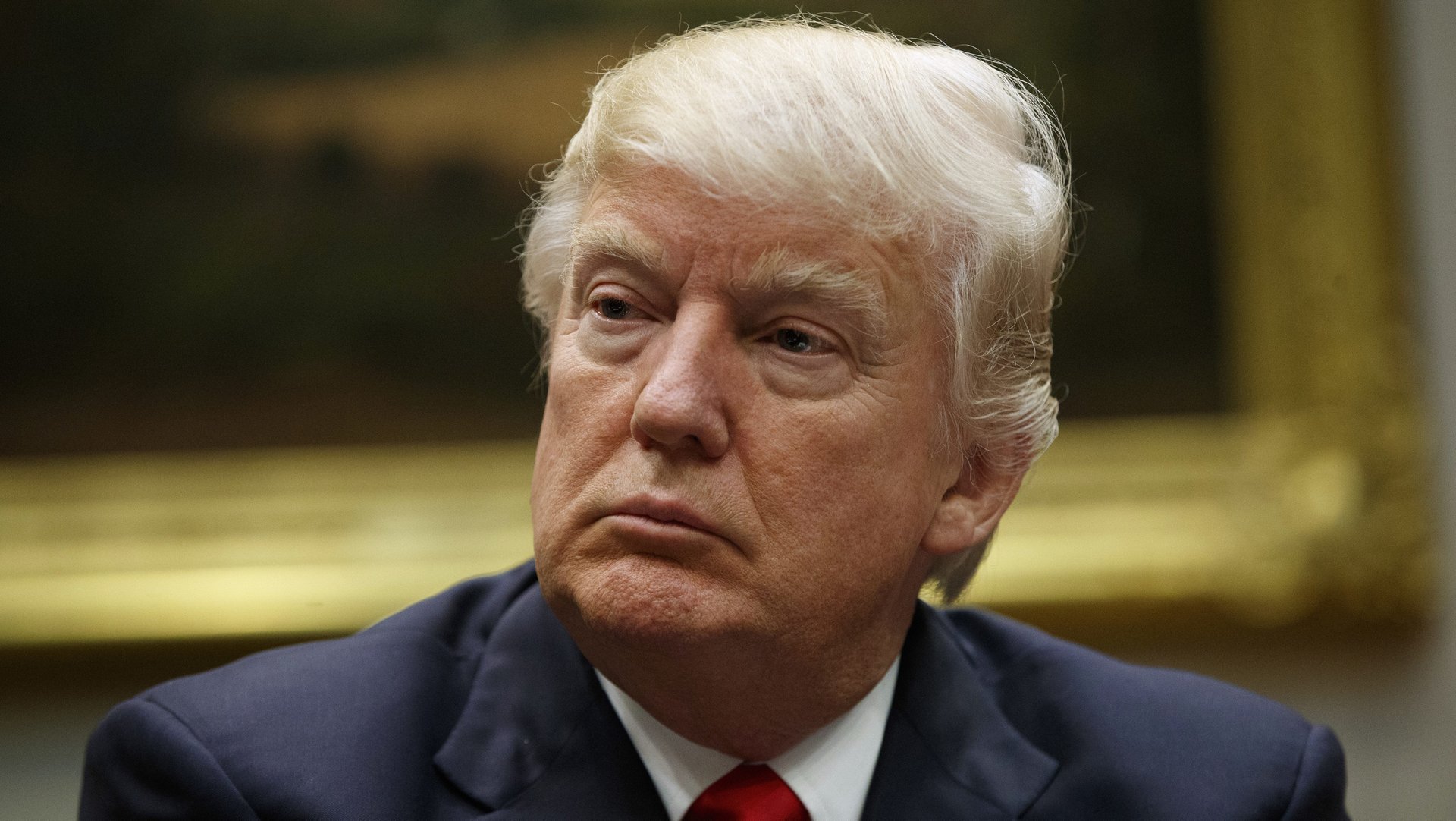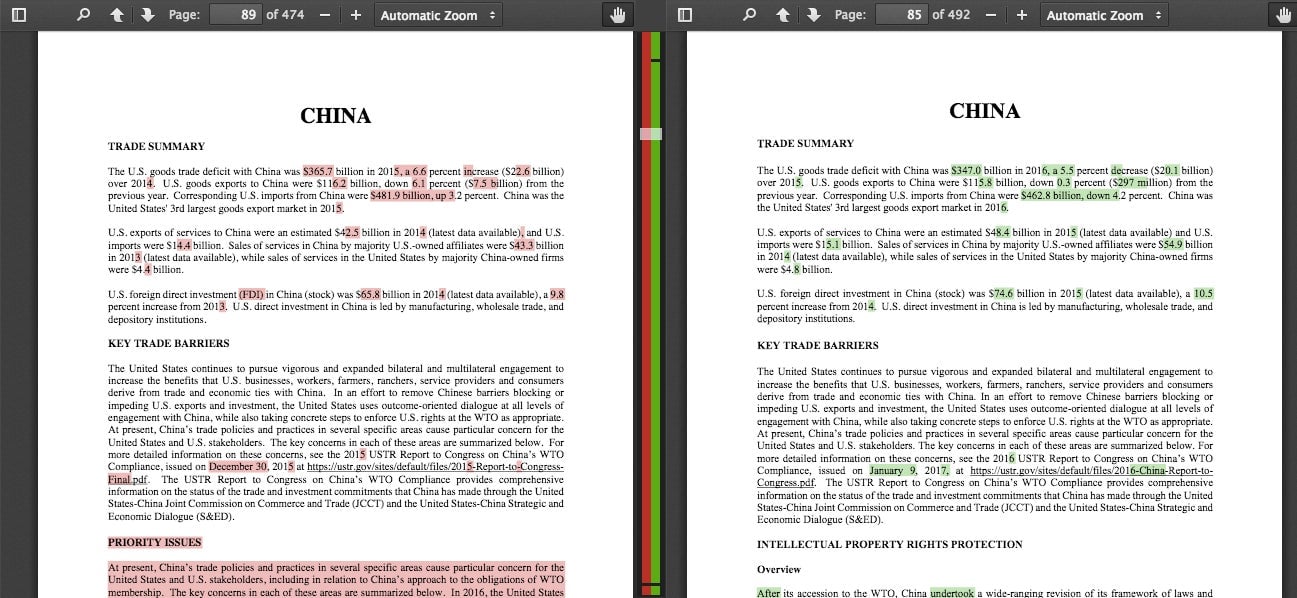Trump’s “tough on China” trade report is much the same as Obama’s in 2016
Ahead of a meeting with Chinese president Xi Jinping next week, US president Donald Trump and the White House are sending the message that it’s time for tough talks.


Ahead of a meeting with Chinese president Xi Jinping next week, US president Donald Trump and the White House are sending the message that it’s time for tough talks.
Trump tweeted that the meeting would be “very difficult,” and signed an executive order today demanding a probe into why the US has a trade deficit with some countries. (Its deficit with China was $347 billion in 2016, the largest in the world.) “On the trade front we’ve got serious concerns with what they’re doing,” White House spokesman Sean Spicer said today. The summit ”isn’t a sit around and play patty-cake conversation.”
Also today, the US Trade Representative, part of the office of the president, issued its 2017 report (pdf) on national trade barriers. The USTR is “working to reshape the landscape of trade policy to work for all Americans,” it says on its website, to craft an “America First Trade Policy.” The report “slams China,” Reuters reported. For example, it called the theft of trade secrets a “serious problem” whose perpetrators ”operate with impunity,” and accused the Chinese government and military of being “affiliated” with people who have done it.
Tough talk? Sure. But it is also identical to what the White House said about the theft of trade secrets in the 2016 report (pdf, pg. 90) issued under president Barack Obama. In fact, when you compare the two reports with Draftable, a website that compares documents, many of the changes are simply newsy updates like what the Chinese drug regulator has done in the past year. Both reports call out China’s censorship, over-production of steel, and theft of intellectual property in unsparing terms.

To be fair, the nearly-500 page report was surely the work of dozens of bureaucrats, who likely got started before Trump took office, so the similarities to the previous year shouldn’t be a surprise. And there are some new sections, including a description of Beijing’s continued demands for technology transfer; a section on China’s overproduction of soda-ash; one on “Securities, Asset Management, and Other Financial Services”; and an extensive explanation of the “Barriers to Digital Trade.” Phrases like “harms U.S. companies” are also liberally sprinkled throughout.
One interesting addition, though: a brief new section on “Bad Faith Trademark Registration,” which says:
Of particular and growing concern is the continuing registration of trademarks in bad faith. Although China has taken some steps to address this problem, U.S. companies across industry sectors continue to face Chinese applicants registering their marks and “holding them for ransom” or seeking to establish a business building off of U.S. companies’ global reputations.
This problem has affected many US companies and celebrities. (One company in China makes “IPHONE” branded handbags, for example, that has nothing to do with Apple). But what makes the clause interesting is its relevance to the Trump family. Although Trump was recently awarded 35 trademarks in China and has over 100 there, Chinese companies with no links to him are selling everything from Trump toilets to Trump condoms, and dozens of them have applied to the trademark office for the right to sell “Ivanka”-branded products.
Still, while the White House seems keen to portray itself as being tough on China, some CEOs, including GE’s Jeff Immelt, have warned the China-US relationship should not change too much. “The country loses if we don’t trade. The relationship with China is key,” Immelt told CBS, adding that Trump was “too smart to give up on that.”
The White House’s combative rhetoric may have to do with the fact that the meeting with Xi comes at a particularly tumultuous time for the Trump presidency. Both houses of Congress and the FBI are investigating Russia’s possible manipulation of the presidential election campaign, and the factionalism in the Republican party is casting doubts on the administration’s ability to pass new legislation. The president needs to look strong and decisive, and China is a convenient whipping boy.
But while painting China as an enemy to be vanquished worked on the campaign trail, it may not be so productive at their first major summit. And as the USTR report shows, the US’s substantive complaints are not much different from what they have been for years.